Find a practice to try with your team
Help Video
How to Find UBT Basics on the LMP Website
LMP Website Overview
How to Find How-To Guides
This short animated video explains how to find and use our powerful how-to guides
How to Find and Use Team-Tested Practices
Does your team want to improve service? Or clinical quality? If you don't know where to start, check out the team-tested practices on the LMP website. This short video shows you how.
How to Use the Search Function on the LMP Website
Having trouble using the search function? Check out this short video to help you search like a pro!
How to Find the Tools on the LMP Website
Need to find a checklist, template or puzzle? Don't know where to start? Check out this short video to find the tools you need on the LMP website with just a few clicks.

Rounding Drives Results
Daily patient rounding gave a Northern California EVS team deeper insights into patient needs, improving cleanliness and care experience scores.
- Connecting with patients and families through daily rounding helps EVS workers quickly spot housekeeping needs and improve cleanliness for a better care experience.
- Giving patients tent cards with contact information for the EVS team.
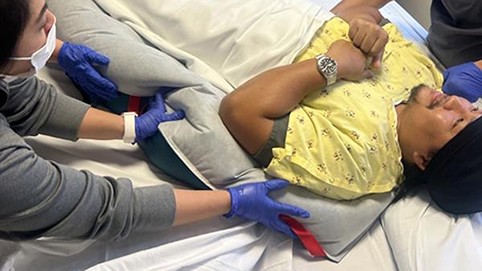
Reducing Pressure Ulcers Pays Off
The Progressive Care Unit at Moanalua Medical Center in Hawaii reduced pressure ulcers by 83% —fixing workflows and using HoverMatts to improve care and save $900,000.
- Preventing pressure ulcers enhances patient safety and comfort and reduces costs, showing how small workflow changes can improve quality and affordability.
- The team made sure all staff had access to a HoverMatt, an inflatable air mattress that makes it safer and easier to move patients, which reduced pressure ulcers.
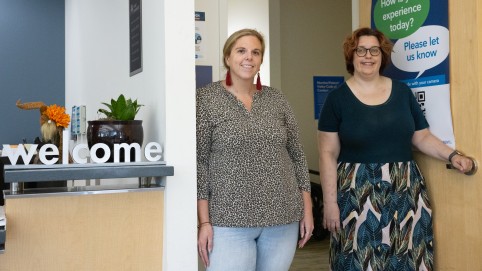
Team Shoots for the (Google) Stars
A Colorado unit-based team enhanced its reputation by improving service and encouraging patients to post Google reviews about their care experiences.
- Seeking feedback is a critical step in meeting our members’ needs, helping them feel good about choosing – and keeping – Kaiser Permanente as their health plan.
- Encouraging patients to evaluate their care experience using Google’s 5-star rating system.
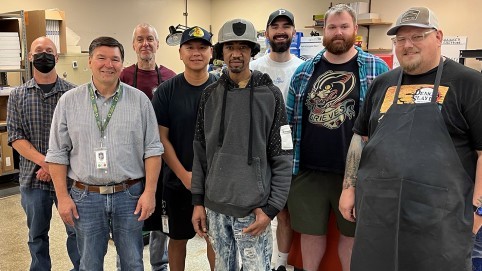
Technicians Conquer Swirl of Scratches
This optical lab team reduced scratches to eyeglass lenses by 94% in the first 4 months of the year after performing a step-by-step review of its lens production process.
- Minimizing scratches to eyeglass lenses during the production process reduces the need to replace them. That helps save costs and improve service to members and patients.
- Reviewing each step of the lens preparation procedure to identify and fix the problem causing scratches to new eyeglass lenses.
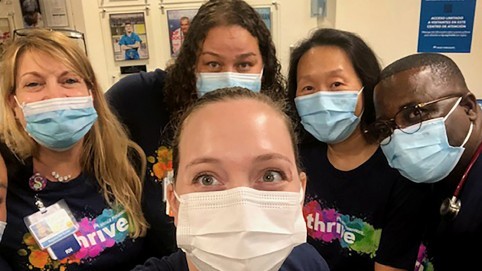
Speaking the Same Language
Using a simple card as a reminder, this urgent care team asked for patients’ race, ethnicity, and primary language to better recognize and address members’ health needs and risks.
- Medical treatment is more effective when members receive care and information in their primary language.
- Adding a questionnaire card during the check-in process reminds team members to ask patients about their race, ethnicity, and primary language
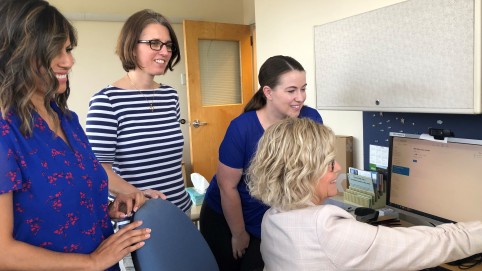
Personalizing Care for Patients
Asking patients about their sexual orientation and gender identity is helping Addiction Medicine team members better identify and treat patients' health risks and needs.
- Collecting sensitive, personal information from patients can tell you a lot about their health risks and needs and help improve the quality of care for all Kaiser Permanente members.
- Creating a standardized process to collect information about patients’ sexual orientation, gender identity, and preferred pronouns.
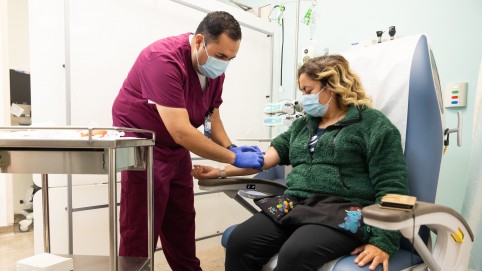
Better Attendance Brings Big Rewards
Last-minute sick calls dropped by 40% after team members learned about the negative impact of such calls and explored time-off options.
- Decreasing last-minute sick calls protects staff members from stress and burnout that affect morale and performance.
- Educating the entire team on the impact of last-minute sick calls and rewarding them for perfect attendance.

Improving Access to Spinal Care
This specialty care team reduced evaluation wait times for Medicaid patients by 35% over 4 months after everyone got involved and they began scheduling phone appointments.
- Cutting evaluation wait times mean patients are connected to care sooner.
- Involving the entire team in the effort to administer patient evaluations.
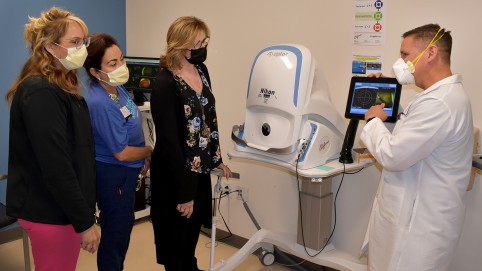
Physicians Combat Pandemic-Related Stress
A multipronged, results-oriented campaign centered around joy in work increased physician involvement in unit-based teams.
- When at risk for burnout, physicians can deepen job satisfaction by engaging in performance improvement with their teams, all while contributing their unique perspective to workplace issues.
- Showcasing small successes on one unit-based team encourages physician involvement in performance improvement efforts
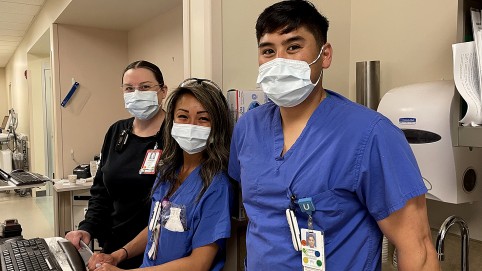
Collaboration Across Teams Reduces Interruptions
Laboratory and emergency departments teamed up to decrease work interruptions caused by non-urgent test result notifications.
- Workplace interruptions can add stress, increase patient errors and cause patients to feel like they’re not receiving good care.
- Lab staff tested the secure chat messaging in Kaiser Permanente’s electronic health record system to notify Emergency Department nurses about non-urgent lab results instead of using their hands-free, voice-controlled wearable communication devices.
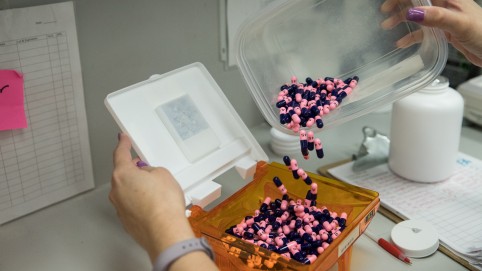
Saving Money Through Prescriptions
Pharmacy UBT reduced the number of high-cost prescriptions filled outside KP pharmacies and saved over $108,000 in 2021.
- When health plan members use KP pharmacies, the cost is lower for them and for the organization.
- Team members contacted Kaiser Permanente patients who filled prescriptions outside KP pharmacies and explained the benefits of ordering their medications within KP.
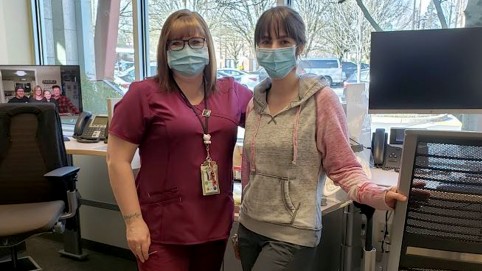
Ensuring Patients’ Wishes in Times of Need
Increased the number of patients completing advance directives from 20 percent to 80 percent in 3 months.
- Advance directives give patients a say in their care plan while they can make informed decisions and help make their choices known to family members and their doctor.
- Creating a process for medical assistants to verify, update and offer information about advance care directives to radiation oncology patients
